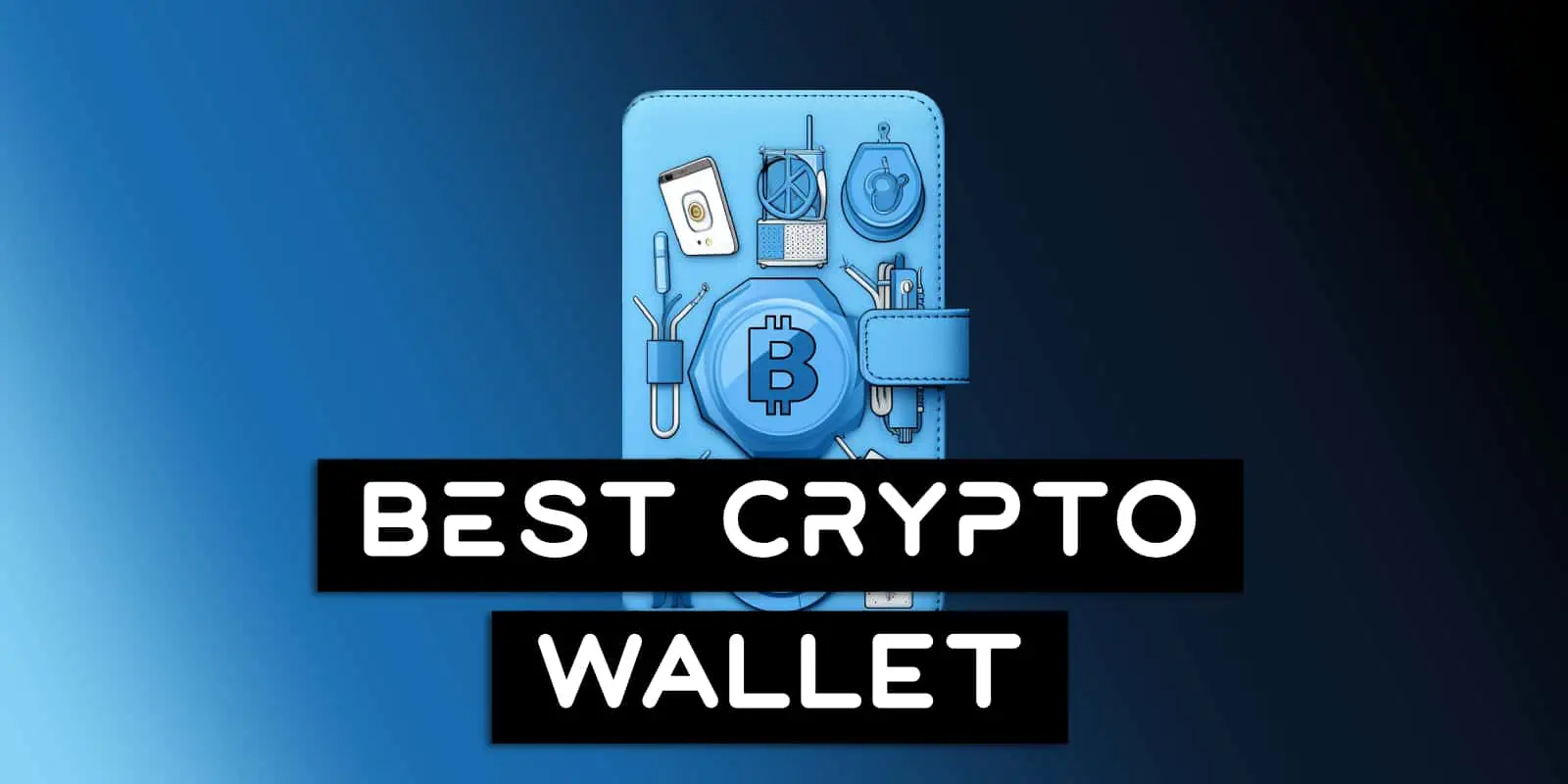Crypto wallets come in quite literally dozens of different shapes, sizes and types. All of them fit into one of two types types though which are software wallets and hardware wallets. Figuring out what the best crypto wallet is can be difficult as it depends on what features you’re looking for.
Some want a big screen as they’re don’t have great eye site, other want small screens for increased security. Many want air gapped hardware wallets while beginners often prefer USB connected one due to their simpler setup and operation.
Taking all of this into account these are the best, most secure crypto wallets in the industry according to our extensive testing with any of them being an excellent choice no matter what you’re after.
Contents
5 Best Cryptocurrency Wallets For 2023
BitBox02
Best Overall Crypto Wallet
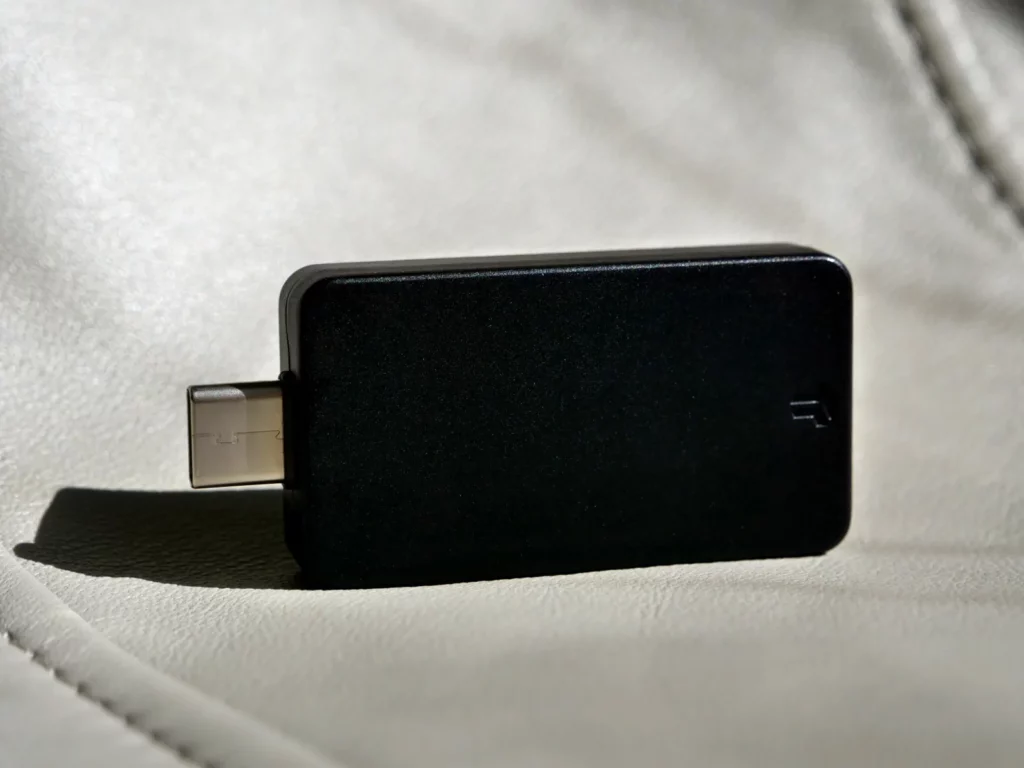
The BitBox02 is made by BitBox (formally Shift Crypto) and comes in two versions, the BitBox02 Bitcoin-only edition and the BitBox02 Multi edition. While the hardware for each is identical, the Bitcoin only firmware is entirely dedicated to Bitcoin (with no support for other cryptocurrencies) with the Multi edition supporting other cryptocurrencies as well as Bitcoin.
It’s one of only two hardware wallets that scores perfect marks in all our tests and has support for a ton of great features. In fact, it has so many security features that we couldn’t cover them all in our review and its support for Multisig is unmatched.
Highlights
- Low key, incredibly small and stealthy design
- Aces all privacy & security test we could throw at it
- Great touch button interface and screen
- Unmatched support for Bitcoin Multisig wallets
- Simple and widely supported desktop and mobile app
BitBox have managed to put bleeding edge, advanced security into a totally noob friendly point and click package. Inside its deceptively simple and ordinary packaging, they’ve brought a world class Bitcoin hardware wallet experience to the table and it should be at the top of everyone’s list when it comes to storing your crypto assets.
Foundation Passport
Best Air-Gapped Cold Storage Wallet
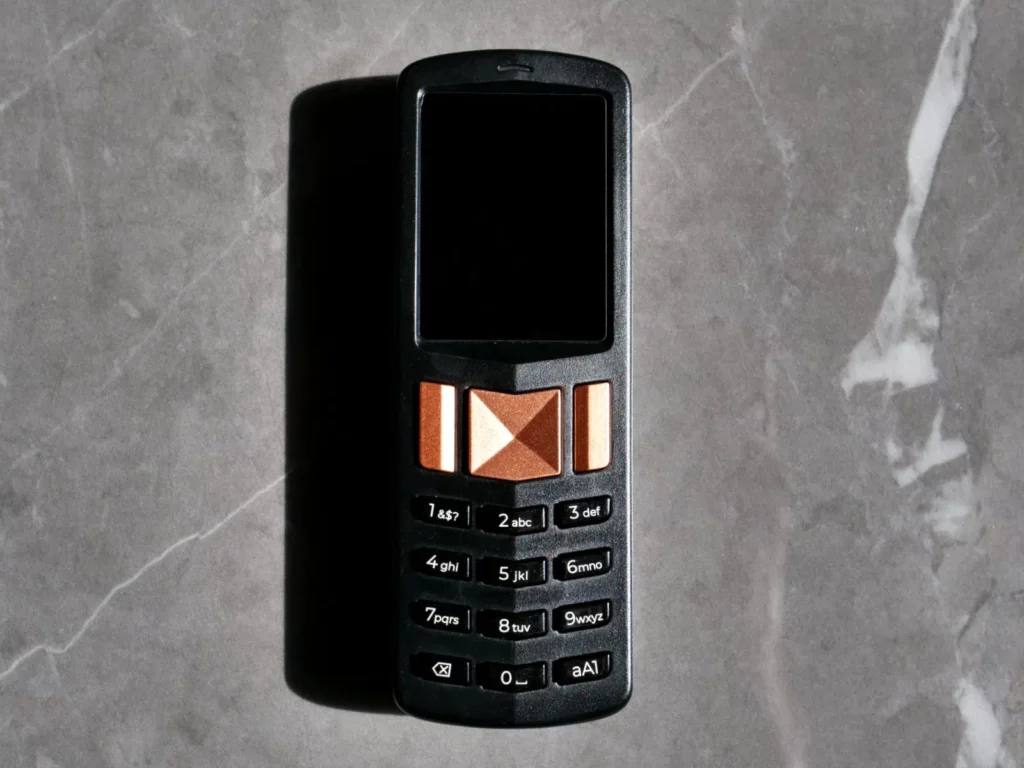
The Foundation Passport is a hardware wallet made by Foundation Devices that scores top marks in all our tests. While it looks like an old Nokia phone (great for a bit of nostalgia!), it has a premium design and feel to it and can perform all functions while never being connected to a computer. It also has a companion envoy mobile app, but can be used without this for all functions if you prefer.
This is Foundation Devices second iteration (also called Batch 2) and has a number of upgrades over the original Founder’s Edition Passport such as a rechargeable battery, more refined design and a color screen.
This highly secure hardware wallet allows you to sign your transactions by scanning a QR code thanks to its rear camera. Its robust security model ensures your seed words are also securely generated and stored.
Highlights
- Super premium materials, design and feel
- Aces all privacy & security test we could throw at it
- 100% fully air gapped design, from seed generation to signing to firmware updates
- Beautiful design with a big buttons and a clear color screen
- Is so solid it can double as a brick to knock people out
The Passport is a top of the line hardware wallet with a serious Nokia complex. With no USB data connectivity or wireless communications of any kind it’s a Bitcoin only, fully air gapped wallet that only communicates via QR codes or microSD card.
The Passport is a unique, well designed and built hardware device. Whether you’re a beginner or expert user we’d absolutely recommend it. It’s fully open source, has excellent seed generation and storage security and works with a wide range of third party software wallets via it’s QR code and microSD port functionality.
Coinkite COLDCARD Mk4
Most Feature Rich Bitcoin Wallet
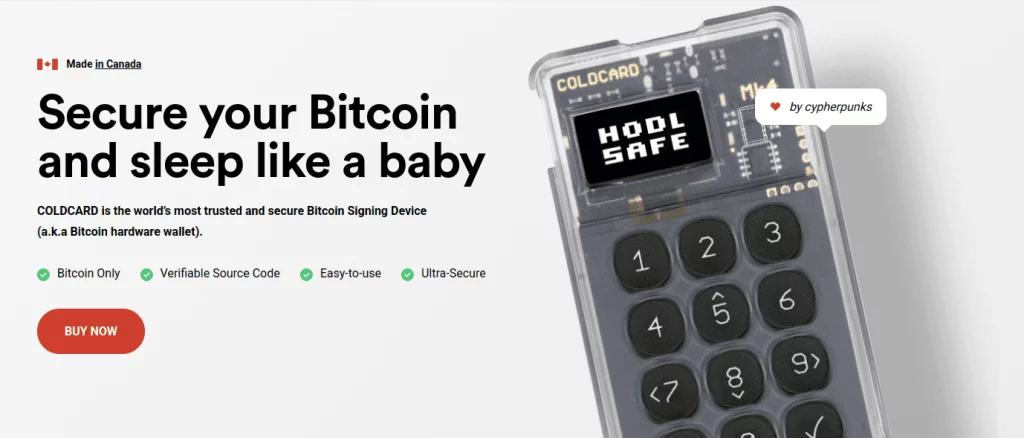
The COLDCARD Mk4 is one of the most popular, long standing and well known hardware wallets out there, and for good reason too. On its 4th generation Coinkite is tirelessly continuing its never ending quest for a more secure, more feature rich Bitcoin only wallet. From trick PINs to safety LEDs to literal parts of the hardware device that you can destroy to permanently turn off certain features, it’s got it all.
Custom built from the ground up for fully air gapped operation, it comes in a bunch of different colors, has a number of accessories and scores near perfect marks in our privacy and security tests. The only part they fall down on is that their software is publicly visible, but not fully open source.
Beyond that they have every feature under the sun and even go so far as to minimize third parties for things like packing and shipping to help ensure customer details are not leaked as much as possible. The COLDCARD Mk4 is also supported by the top third party wallets and pairs excellently with mobile wallets due to its NFC feature.
Highlights
- Unmatched feature set and third party wallet support
- Near top marks for privacy & security
- 100% fully air gapped design, from seed generation to signing to firmware updates
- Big buttons and incredibly well thought out hardware design
The COLDCARD Mk4 is yet another top contender in the hardware wallets category and while its screen might be a bit small for some, it more than makes up for this in features and support. Being Bitcoin only and with a focus on simplicity its software has a very small attack surface area which further contributes to its industry leading security.
To the untrained eye you might just think it’s a weird looking calculator, but this unique crypto wallet is fantastic for those who want to take their security to the next level.
Blockstream Jade
Best Crypto Wallet For Those On A Budget
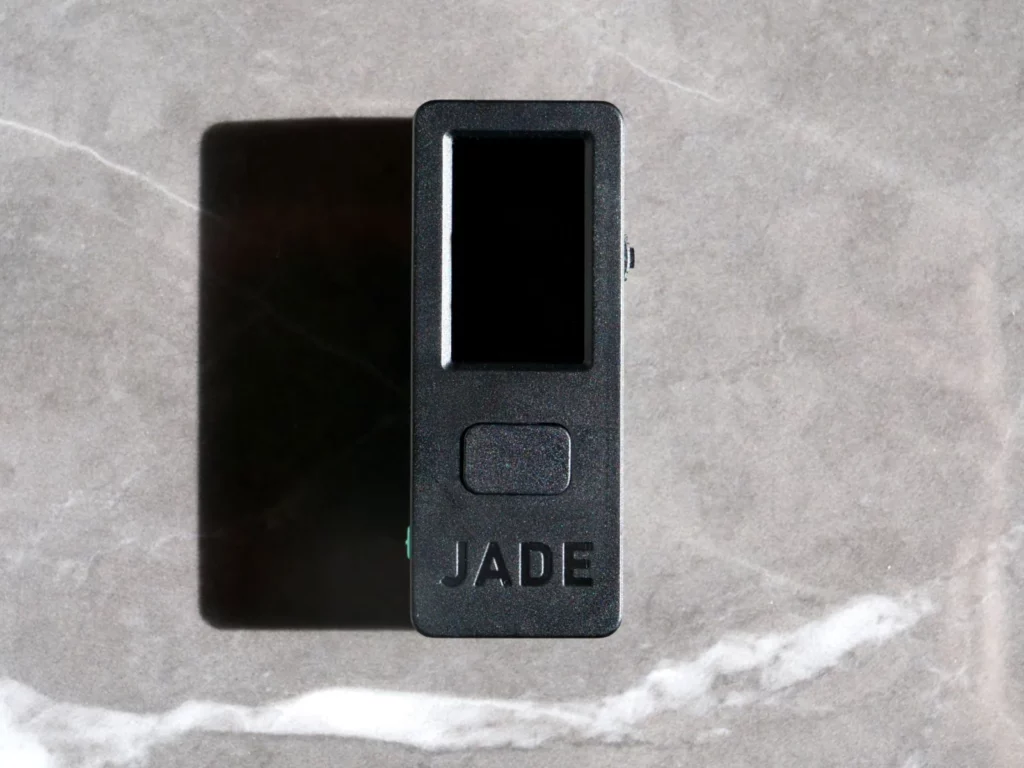
The Blockstream Jade is one of the cheapest crypto wallets out there that’s made by Blockstream, a veteran in the Bitcoin industry that’s been around since 2014. It’s clear right from the start that they know exactly what they’re doing with it acing all our privacy and security tests.
The only reason it isn’t the best cryptocurrency wallet on our list is because it’s missing a microSD card slot, meaning you cannot easily create a crypto wallet backup file to store alongside your seed phrase. It’s a small feature
Highlights
- Amazing value for money
- Aces all privacy & security test we could throw at it
- Supports USB, Bluetooth, air gapped and stateless modes
- Super simple interface and software
For both beginners and experts that are looking to safely store bitcoins we would absolutely recommend the Jade. It’s a deceptively powerful hardware device that can be used on all major operating systems and phones with wide wallet support that comes in at a super aggressive price.
With it’s relatively cheap price tag compared to most other crypto wallets it also packs a huge slew of really important and useful features such as its stateless mode, SeedQR scanning, Bluetooth, multisig support, duress PIN and much more. This means it will grow with you as you learn more about all the fantastic things Bitcoin can do.
SeedSigner
Best DIY Hardware Wallet
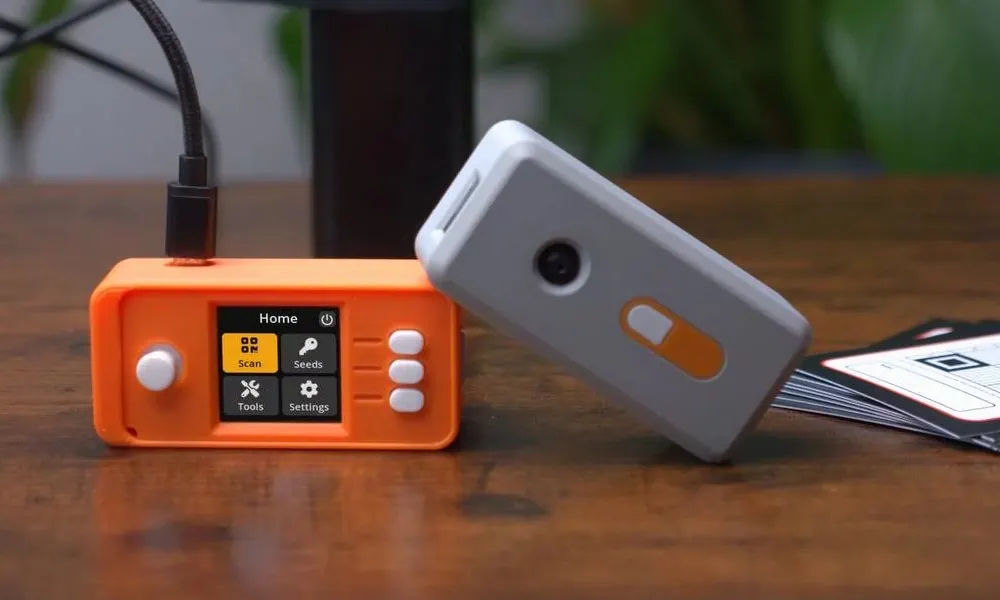
SeedSigner is an amazing free and open source software project that allows anyone to create an extremely secure crypto wallet completely out of cheap and general purpose hardware that you buy off the shelf. With full installation instructions as well as a shopping list to boot, all you have to do is go to your local electronics store, buy the hardware, assemble it like Lego and flash the OS onto it.
While this isn’t as easy as just buying a pre-made one, it helps to avoid supply chain attacks plus can double as a fun home project for you to do one weekend. Another very unique thing about this cold storage device is that it’s completely stateless, meaning that it never stores any information on it. Once you turn it off, everything is wiped from memory.
SeedSigner aces all our privacy and security tests, is incredibly cheap its case can be easily 3D printed into any shape or color you want. As far as bitcoin wallets go, it’s one of the most self sovereign ways to securely store bitcoin.
Highlights
- Cheap and fun project for those that enjoy electronics
- Aces all privacy & security test we could throw at it
- 100% fully air gapped design, from seed generation to signing to firmware updates
- Fully stateless operation meaning the device itself doesn’t need to be secured
While SeedSigner is one of the most secure crypto wallets you can get, we’d only recommend it for those that are comfortable with things like Raspberry Pis, soldering, compiling, flashing and installing software etc. We know this isn’t for everyone, but it’s unique stateless nature and use of general purpose hardware enables very simple and secure storage of your digital assets at a rock bottom cost.
Other Crypto Wallets We Considered
Trezor Model T
The Trezor Model T is a number of years old now, but is still a solid choice for those wanting to store not just Bitcoin, but other crypto assets too. We of course don’t recommend this, but Trezor makes it as easy as possible whilst also ensuring a great level of security.
Their large 1.54″, color touch display also make navigation and operation a breeze along with the USB-C connection and 2 years warranty. As they’ve been making hardware wallets for years they also have near universal support across software wallets and other platforms too.
Specter DIY
The Specter DIY is another fully open source software project like SeedSigner that runs entirely on general purpose hardware. It also comes with an enormous 4″ color touch screen display that’s a life saver for anyone that doesn’t want to be squinting at a tiny device any time they’re sending and receiving their crypto.
While you still have to buy, assemble and flash on the OS yourself, Specter also comes with an excellent companion software wallet app. It aces all of our privacy and security tests but doesn’t have support for USB-C or microSD card backups.
Cypherock X1
The Cypherock X1 is a small hardware crypto wallet that uses quite a bespoke method to protect your coins, which comes with a number of legitimate benefits, as well as a few drawbacks. It uses a technique called Shamir’s Secret Sharing (SSS) to split your private key up into five separate parts or shards.
From here, it stores each one of those five parts on the various X1 Cards and the X1 Wallet which is the main device with the screen on it. In order to reconstruct the entire seed phrase, you need two of the five parts. This means that a user can loose up to three of the five parts and still be able to recover their seed.
Reviewing the Cypherock Wallet gave us a number of pleasant surprises as it’s fully open source, very easy to setup and use plus has excellent seed generation and storage security practices. That being said it’s also quiet new which means it doesn’t have support for a number of key things like multisig.
What Is A Crypto Wallet?
A Bitcoin wallet is simply software that:
- Manages your Private Keys which gives you access to spend your digital assets
- Generates new Bitcoin Addresses so you can receive bitcoins
- Creates and broadcasts transactions to the network so you can spend your bitcoins
They come in many shapes and sizes such as this software wallet called Sparrow Wallet.
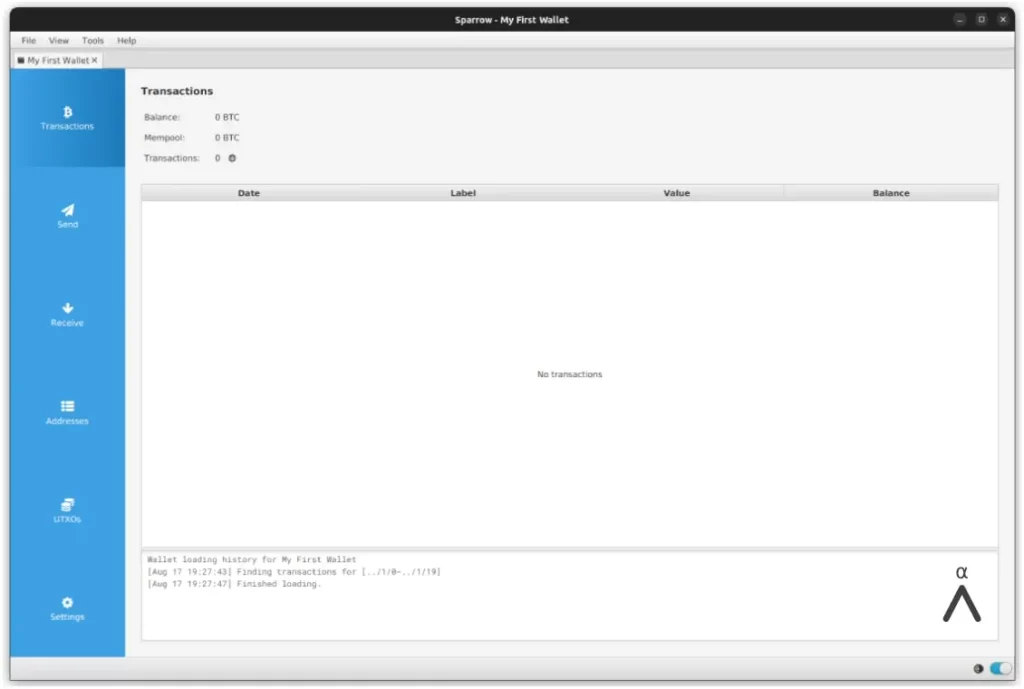
The first and most important thing you need to know about all Crypto Wallets is that they do not store any bitcoins! The name “wallet” is used because the creators are trying to make it easily relatable to everyday people, but in actual fact wallet software isn’t like a normal “wallet” that might store physical cash or coins.
Instead, Bitcoin Wallets only ever store your private keys which is what gives you access to your bitcoins. Every bitcoin is and always has been located on the Bitcoin network. In summary:
- Bitcoin Wallet: Stores your private keys
- Bitcoin Network: Stores your bitcoins
This might seem like a simple distinction, but it’s a critical one that is very important to understand and embed right from the start as otherwise it leads to lots of confusion.
People mistakenly believe that if they uninstall their Bitcoin Wallet software “all the bitcoins are now gone”. This isn’t true as long as you still have your private keys. There are no bitcoins ever “stored” in your “wallet”, only private keys.
The easiest way to properly think about a Bitcoin Wallet is to instead think of it as a “viewer”. You use this viewer software to look into the Bitcoin network and view what bitcoins you own with your specific private keys.
Private Key Vs Public Key Vs Seed Phrases
So what the hell is a private key then anyway? A private key is a cryptographic key that gives you access to your bitcoins on the Bitcoin network and looks something like this:
185082410266061011419354707831708373725981652362318265124838197206310542791322
This huge random looking number is obviously impossible for normal people to remember so modern wallets instead use this to generate your Mnemonic Sentence.
This is either 12 or 24 words that most wallet software provides to you and asks you to store in a safe place. The Mnemonic Sentence is most commonly referred to as a Seed Phrase, but it also goes by the names Mnemonic Words, Seed Recovery Phrase or Backup Seed Phrase.
Some people mistakenly call it the “private keys” but as you can see, these are two completely different things!
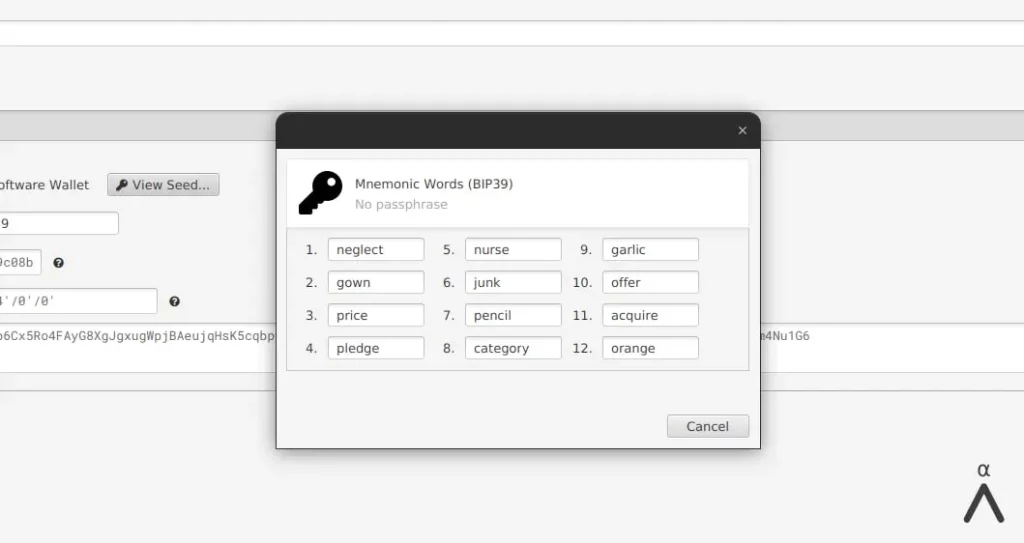
The wallet uses this private key to generate a corresponding public key which is what’s used by other people to send you bitcoins, similar to the address of a house. So in summary:
- People use your public key to know where to send you bitcoins
- You use your private key to spend those bitcoins
- Your Mnemonic Sentence is generated from your private key and is just 12/24 words
Public keys are free to be shared publicly, while private keys and your Mnemonic Sentence should always be kept private. If anyone else gets a hold of your private keys or Mnemonic Sentence, they can just install any Bitcoin Wallet software, enter either of them in and steal your bitcoins and no one can stop them.
There is a lot more to this system including how these private keys are generated, how the Mnemonic Sentence is generated, passphrases, how keys are used to sign transactions and more but it is outside the scope of this piece. That’s why we have a totally separate piece that explains What Public And Private Keys Are.
Do I Need A Crypto Wallet?
Yes. At a minimum you will need a software wallet to send and receive bitcoins. If you’re holding anything more than pocket change we also recommend buying one of the dedicated hardware wallets listed above or on our Crypto Wallets page.
This will ensure that your private keys are stored offline and not on anything that’s connected to the internet, increasing security. Many crypto users either leave their digital assets on exchanges or in a software only “hot wallet” and as a result, get hacked and lose their crypto.
Self-Custodial Vs Custodial Wallets
As private keys give you access to your bitcoins, it’s important to know who holds them:
- Self-Custodial: You hold the private keys and have full control of your bitcoins
- Custodial: A third party (custodian) holds the private keys giving them full control of your bitcoins
While not specifically stated in the Bitcoin Whitepaper, the general ethos of Bitcoin is that you should always have custody of your bitcoins and hold your own private keys. You should be the only one that holds the private keys as otherwise you have to place your trust in other third parties.
While some people choose to willingly give their private keys to other businesses – typically centralized exchanges explained below – it’s not recommended, especially for medium to large amounts. When a wallet is “custodial” it means you only have access to your bitcoins if that third party allows you to.
If they think you have done something wrong, don’t like where you want to send your bitcoins, think you have violated their T&Cs, are forced by a government or simply just go bankrupt or get hacked you will lose access to your funds. Virtually all of these third parties now also force you to prove your identity with highly invasive privacy checks. Furthermore, it can mean it takes much longer to send your bitcoins if you have to wait for their approval.
This isn’t just theoretical either, people have repeatedly Lost Bitcoin that were stored with these third party companies through hacks, employees disappearing with customer funds (fraud), CEO’s dying and losing the access to the funds and lately, degenerate and greedy gambling of customer funds.
While there are a few legitimate use cases for using custodial wallets, there are many, many excellent self-custodial wallets available across all platforms that are just arguably better in most metrics. Don’t let anyone fool you into giving up your private keys. As the famous saying goes…
Not your keys, not your coins!
Types Of Crypto Wallets
Hot Wallets
A hot wallet is a type of wallet that runs on any internet connected computer, phone, exchange or other program and has no hardware wallet protection. They can be custodial or non-custodial and most mobile wallets or desktop wallets out there are hot wallets. As the private keys are kept in the software, they are highly vulnerable to malware or hackers. It is recommended not to keep a large amount of funds in hot wallets.
Cold Wallets
A cold wallet is a type of wallet that runs on any computer, phone, exchange or other program and has a hardware wallet component to it that stores your private keys. They can be custodial or non-custodial, but the critical difference is that the private keys are kept physically separate from the internet connected software wallet component. They are highly resistant to malware or hackers.
Mobile Wallet
A mobile wallet is a type of wallet that runs exclusively on your phone. They can be custodial or non-custodial and even integrate with a hardware wallet device via USB or Bluetooth for added security. Some examples include Electrum, Nunchuk and BlueWallet
Browser Extension Wallet
A browser wallet is a type of wallet that runs exclusively in a web browser extension program. They can be custodial or non-custodial but are usually non-custodial and don’t use hardware wallet protection. As the private keys are kept in the software, they are highly vulnerable to malware or hackers. It is recommended not to keep a large amount of funds in browser extension wallets.
Exchange / Web Wallet
An exchange or we wallet is a type of wallet that runs in a website, similar to how a bank runs your bank account. These are usually custodian and don’t use hardware wallet protection. They also introduce third parties (the ones that own the website / exchange) and thus bring even more risks. It is recommended not to keep any amount of funds in exchange or web wallets. Some examples include Coinbase, Binance, Blockchain and BitGo
Desktop Wallet
A desktop wallet is a type of wallet that runs exclusively on your desktop computer. They can be custodial or non-custodial and even integrate with a crypto wallet device via USB or Bluetooth for added security. Some examples include Sparrow, Electrum and Specter.
Multisig Wallet
A Multisig Wallet is a type of wallet that can only spend the funds when multiple private keys are used together, instead of a single key, avoiding a single point of failure. These private keys can be spread across multiple software and/or hardware crypto wallets, each with their own single private key.
They are usually non-custodial, but there are some services which can take custody of one of the multiple private keys for additional security. They are the most advanced wallet type and introduce a few extra complexities in order to increase the security.
For example a 2-of-3 multisignature wallet might have your private keys spread across three separate hardware wallets. Any two are required to move the money but the loss of any one does not result in loss of money.
How To Setup A Safe Crypto Wallet
To begin with, we strongly recommend downloading and installing Sparrow Wallet. It’s completely free and our guide has a full run down of how to install it, set it up, how to create your first wallet, spend and more.
After you’ve finished installing it, we also recommend buying one of the dedicated hardware wallets listed on our Crypto Wallets page. This will ensure your private key is kept offline significantly increasing the security of your wallet.
Finally, we also recommend configuring your new crypto wallet to use your own Bitcoin Full Node, preferably over Tor. This helps fully protect your financial privacy ensuring others can’t see your transactions or know what wallets you hold or their balances.
What To Consider When Picking A Hot Wallet
When choosing your Bitcoin wallet try to make sure it’s:
- Non-Custodian: Make sure you always have full control of your private keys
- Reputable: Make sure you fully research and vet the wallets reputation and history. There have been many cases of malware disguised as wallets that steal your bitcoins, so do your research carefully before deciding which one to use and trust. This also goes for any hardware crypto wallet devices you use
- Standardized: Make sure it supports the BIP39 standard and is generally not proprietary. Ideally you want it to be open source software that has been vetted by trusted security audits and the bitcoin community over many years
- Verifiable: Make sure it allows you to verify the signature of the manifest files with PGP keys as well as a shasum to confirm the authenticity of the binaries. This ensures that the software files you’re downloading are actually from the developers and haven’t been secretly replaced by hackers
- Backup: Make sure it has robust backup and restore capabilities built into it
There are many more features that wallets have such as fee control, Coin Control, password protection, Tor and Full Node connectivity and more. We will be covering all of this in future pieces so be sure you subscribe!
What To Consider When Picking A Cold Wallet
While you’re welcome to buy any hardware crypto wallet you think is appropriate, we’d only advise it after considerable scrutiny. Here are a few major considerations you should weigh up before just purchasing any random device you find on the internet:
- True Randomness Generation: It should uses two independent sources of randomness (or more) for your private key generation. One of the main purposes of hardware crypto wallets is to generate your private keys, this needs to be next level grade bullet proof! A poorly generated private key is a huge security hole
- Open Source: Its code should be 100% viewable for you or any other security researcher to review and interrogate. Open source code, vetted over many years is one of the top ways to ensure a secure environment
- Verifiable Software Binaries: It should have verifiable software binaries and PGP key signature checking with easy to follow instructions on their website. This allows you to verify that the software you’re downloading from their website hasn’t been maliciously altered or tampered with
- Uses Interoperable Standards: It should use common, industry standards such as BIP39 for its seed phrase words to allow for interoperable use in case there’s any reason to migrate away from that hardware vendor (eg they go bankrupt / get taken over / start acting stupid). To help with this, check out the major software wallets out there and see which devices they integrate with
- Reasonable Company History: The company itself should have been around for at least 5 years or more and the more revisions of the hardware they have, the better (eg. COLDCARD is up to “Mk4” while BitBox is up to “02” now). This hopefully ensures (but doesn’t guarantee) that hardware level issues have been resolved at the source and that the hardware and software have had most of their main kinks sorted out. You should also review their general practices like storage of customer data, history of how they handle security breaches and how they work with the security community in general
- Works With Standard Wallets: It should work with any industry standard third party Bitcoin wallet such as Sparrow Wallet. You should not be locked into using only their bundled software wallet program as this can be both a privacy risk and a problem if the company ever runs into troubles
- Full Bitcoin Node via Tor Support: It should fully support you connecting it to your own Full Bitcoin Node via Tor. This is vital for Advanced and Expert levels both for privacy and security and many hardware wallets “experts” recommend such as the Ledger don’t do this!
- Easy Import / Export: It should fully support importing and exporting of all required info (Including Coin / UTXO Labels) for easy backup and restore, especially across various third party wallets (eg exporting from their wallet app and importing into a third party wallet) and for Multisig wallets that require more detailed backup information than single signature ones
- Multisig Support: It should fully support Multisig Wallets as well as xPub / Watch Only wallets and this support should extend to the standardized third party wallets as well
- Labeling And Control Of Coins: It should fully support labeling of coins (UTXOs) and being able to control which coins you spend either through their own app or through a standardized third party wallet
- Purchase Only From The Supplier: It should come in a tamper evident bag directly from the supplier and no one else. Do NOT buy from other random online sellers, eBay, forums or any other source
- Consider Physical Size: When choosing a device many people prefer large screens to enable easier reading / interaction, but be aware that the larger the device is, the harder it is to store / hide. It will also likely be more expensive too
Pro Tip: Don’t buy a hardware wallet with your real world identity
If the company gets hacked, your identity is forever linked to “this customer has so much crypto they needed to buy a hardware wallet” = huge target. A recent example of this is how Ledger had all their customer data stolen. Now all those people are forever at physical risk with criminals knowing the names, addresses, emails and more. Not cool!
That company may also link your identity and funds to that hardware crypto wallet and monitor your device / addresses / balance / transactions via their software (eg. Ledger Live)… which they then pass on to governments, third parties etc.
Buying the device without revealing your own real world identity is a one time, highly beneficial security enhancement that ensures knowledge of your stash is never revealed no matter how many times they get rekt.
Most crypto wallet manufacturers will accept Bitcoin too making this a relatively easy way to protect yourself. Make up a name, create a one time Proton.me email account via Tor Browser, pay via Bitcoin you obtained via a non-KYC source and you’re set!
FAQ
What Is The Best Crypto Wallet?
The best hot cryptocurrency wallets are those that are open source, non-custodial, reputable, standardized, verifiable and allow you to create simple backups. They should also allow you to connect to your own full node over Tor. The best cold storage wallets are those that have true randomness generation so that your seed phrase is secure. They should also store that seed phrase securely, be open source, verifiable, standardized and be interoperable with many crypto wallets.
What Is The Safest Wallet For Crypto?
The safest crypto wallet is a hardware wallet, also called a cold wallet or a cold storage wallet. These separate your private key and keep it in offline storage to make sure it’s protected from online hackers. It also ensures you’re using a non custodial wallet which protects your crypto assets from deceptive or failing third parties.
Which Crypto Wallet Is Best For Bitcoin?
There are many excellent crypto wallets that support Bitcoin, for desktop wallets we recommend Sparrow Wallet as it is a fantastic software package that also supports a broad range of hardware wallets. For the hardware side we rate and review all the top options on our Crypto Wallets page.
What Is The Best And Cheapest Crypto Wallet?
The best value for money crypto wallet we’ve tested to date is the Blockstream Jade. It’s one of the cheapest cold storage wallets whilst still also aces all our privacy and security tests and offering a huge range of supported features and operating modes. From air gapped to Bluetooth to stateless it’s the best value crypto wallet we’ve seen.
Do I Really Need A Crypto Wallet?
Yes. In order to send and receive any crypto asset you will need a digital wallet that crypto asset. If you want to have a secure wallet for your digital assets, then we strongly recommend buying a hardware wallet and taking it all off any crypto exchanges or other custodial wallets.
Why You Can Trust Us
Our comprehensive review process rigorously researches and tests all aspects of the products we review. If you buy through our links, we may get a commission, but opinions are always our own. Review our full Crypto Wallet Rating Methodology.

